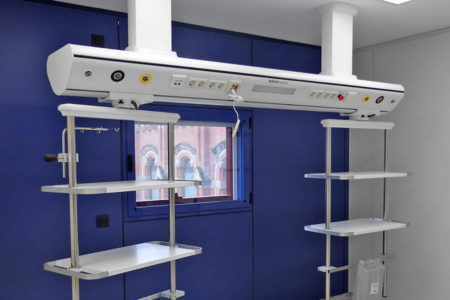Last June 5, World Environment Day, an annually recognized date, was celebrated around the world. On this occasion, the Healthcare Technology sector and electrical hospital engineering joined this important cause, reaffirming their commitment to the Sustainable Development Goals (SDGs). (SDGS). In recent times, they have intensified their responsible initiatives towards society and the planet, demonstrating their purpose in favor of the environment.
During the conference, entitled ‘The contribution of the Healthcare Technology Sector and its collaborators to the Sustainable Development Goals’, organized by the Corporate Social Responsibility (CSR) Commission of the Spanish Federation of Healthcare Technology Companies, Fenin, the industry’s commitment to the SDGs was highlighted. Special emphasis was placed on the goals related to health and wellbeing (SDG 3), the environment (SDGs 12 and 13), partnerships to achieve the goals (SDG 17) and SDG 9 (Industry, Innovation and Infrastructure), which cuts across all the sector’s activities.
The fundamental purpose of this sector is to improve people’s quality of life, a principle rooted in its essence. To achieve this, they make available to the National Health System more than 500,000 solutions to address various diseases and conditions.
Challenges to be faced in the implementation of the SDGs in the health sector
The health sector faces significant challenges in implementing the Sustainable Development Goals. These challenges are of great importance and cover a variety of areas, among which the following stand out:
1. Inequities in access to health care
Despite the progress made in the field of healthcare globally, there are still significant gaps in access to quality health services. Vulnerable communities, especially those residing in rural or low-income areas, face difficulties in obtaining basic health services. Overcoming these disparities and ensuring equity in access to healthcare represents a crucial challenge.
2. Emerging and re-emerging diseases
The emergence of new diseases, such as the COVID-19 pandemic, and the re-emergence of older diseases, such as tuberculosis and HIV/AIDS, pose significant challenges for the health sector. These diseases can have a devastating impact on communities and require an agile and effective response to adequately address them.
3. Climate change and health
Climate change directly and indirectly impacts human health. Extreme weather events, environmental degradation and natural resource scarcity can intensify the spread of disease, malnutrition and mental health disorders. Addressing the effects of climate change on health is critical to ensuring a sustainable future.

Exploring the Potential: Opportunities to Advance the SDGs
Despite the aforementioned challenges, the health sector is in a favorable position to apply opportunities and move towards sustainability, contributing to the achievement of the SDGs. Some of these highlighted opportunities are:
1. Technological innovation
Technology has transformative potential to revolutionize healthcare and improve the quality and accessibility of health services. Telemedicine, the use of big data in public health and the use of artificial intelligence are just some of the areas where technological innovation can play a crucial and promising role.
2. Cross-sector collaboration
Addressing health challenges requires close collaboration between the health sector and other sectors, such as education, environment and economic development. The interconnectedness of the SDGs allows synergies to be harnessed and comprehensive solutions to be found that effectively address health issues in their broader context.
3. Focus on prevention
Placing greater emphasis on disease prevention can have a significant impact on the health of populations and reduce the burden on health systems. Promoting healthy lifestyles, implementing vaccination programs and improving public health policies are some of the strategies that can contribute to disease prevention.

Towards a sustainable world: TEDISEL Medical’s commitment to the SDGs
At Tedisel, we are committed to a more sustainable world. That is why we work and implement policies oriented towards sustainable development at all stages of production. Some of our initiatives include:
- Improvement in waste management
Implementing container systems to properly classify the different types of utensils, always prioritizing recycling as a fundamental criterion.
- Noise control
Limiting noisy activities to daytime hours and, as far as possible, scheduling them close to midday to minimize noise pollution.
- Sustainable practices for IT equipment and electrical devices
Using energy-efficient IT equipment, turning off devices during periods of inactivity, and performing power consumption analyses to implement appropriate cost-saving measures.
- Lighting efficiency
Adjusting lighting to the specific needs of each workstation in terms of light intensity and quality, considering energy efficiency as a key element. In addition, unnecessary light points should be eliminated and lighting should be reduced in less important areas.

Considering the current landscape, it is clear that the health sector faces significant challenges on its path to sustainability and the achievement of the Sustainable Development Goals. However, within these challenges we also find valuable opportunities to foster innovation, strengthen collaboration and promote prevention. By effectively addressing these challenges and capitalizing on the opportunities presented, we can advance a more equitable, accessible and sustainable health system, thereby improving the quality of life and well-being of people around the world. By joining our efforts in this direction, we can forge a healthy and sustainable future for generations to come.









